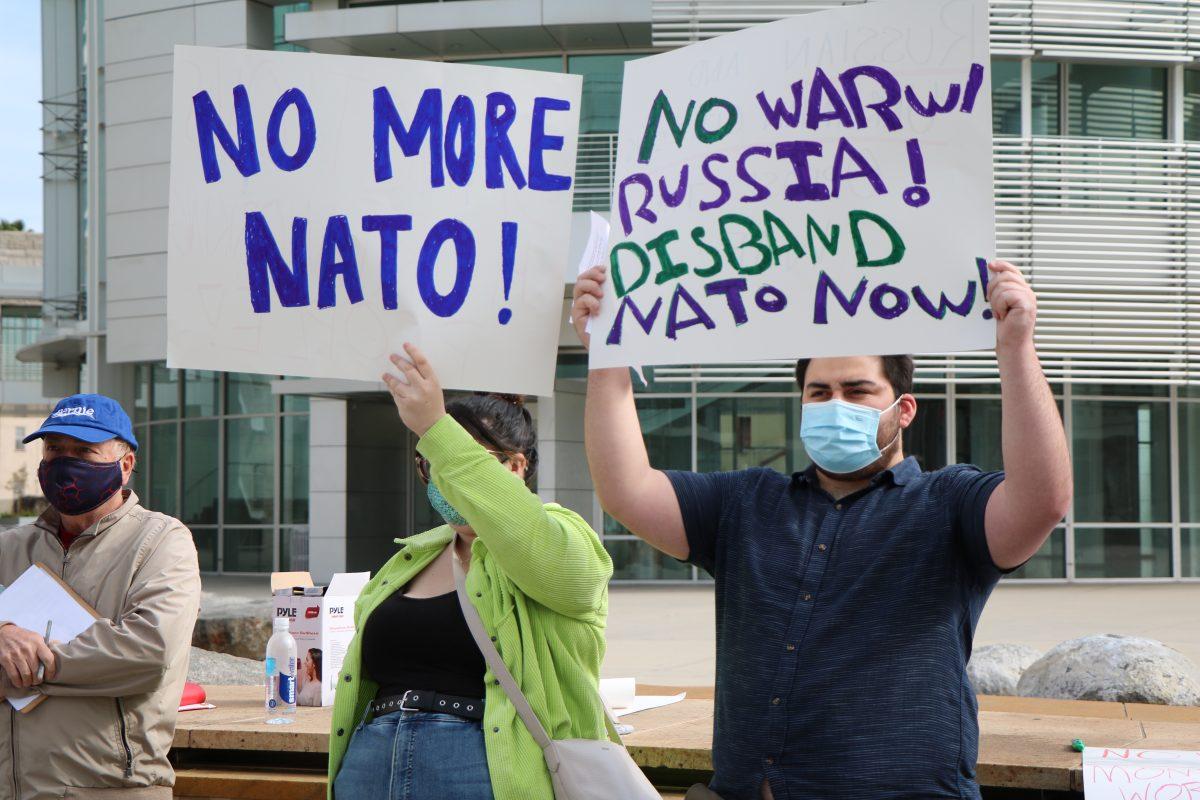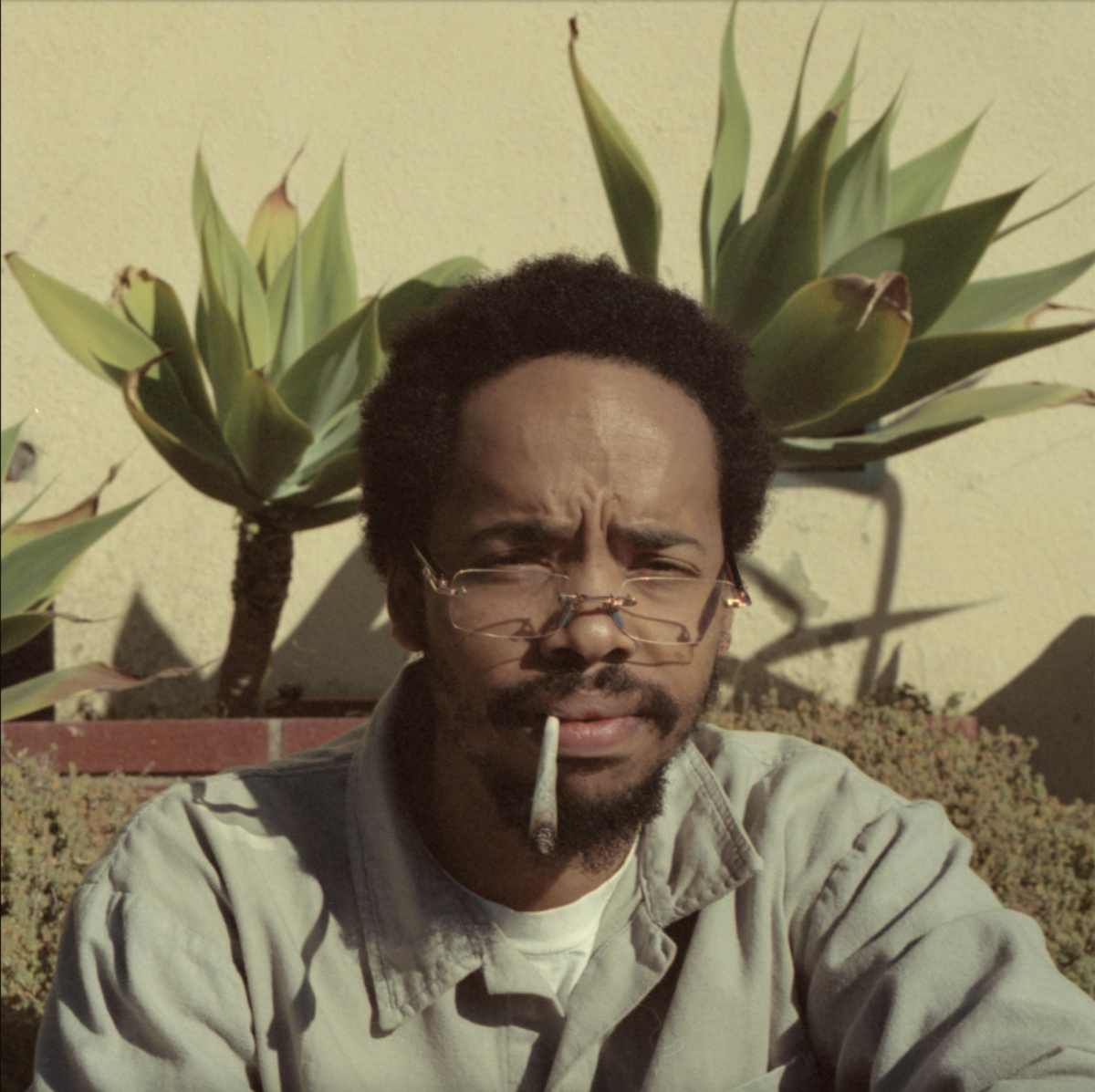More than 30 community members gathered at San Jose City Hall Saturday to protest U.S. intervention after Russia invaded Ukraine on Thursday morning.
The rally began at 2 p.m. with attendees chanting, “negotiate don’t escalate.”
According to a Thursday AP News article, the attack against Ukraine, anticipated for weeks by U.S. and Western allies, is the largest ground war in Europe since World War II.
President Joe Biden said in a Thursday statement that the U.S., along with allies, imposed financial sanctions on Russia “in response to Putin’s war of choice against Ukraine.”
Biden said the U.S. targeted all ten of Russia’s largest financial institutions, imposing full blocking and correspondent and payable-through-account sanctions, and debt and equity restrictions.
David Almeida, president of the San Jose State Students for a Democratic Society chapter, said he condemns “the refusal of our elected officials to de-escalate the situation” and demands an end to “warmongering in Eastern Europe.”
“We hope that by protesting we show our government that we don’t support any sort of sanctions on Russia. Sanctions, although they’re promoted as a more peaceful resolution, they end up hurting normal people in that country by depriving them of economic essentials,” Almeida said.
Mike Paradela, SJSU alumnus, Freedom Road Socialist Organization member and main organizer of the event said he sought “like-minded folks” when planning the rally.
Freedom Road Socialist Organization is a Marxist-Leninst organization in the U.S., according to the group’s website.
“We feel it is really important to have an anti-war voice that is specifically articulating the middle position that mass-benefits 99% of the country,” he said after the event.
Several other community organizations also attended the event including Code Pink Women for Peace and Act Now to Stop War and End Racism.
Many attendees also called for the cancellation of the North Atlantic Treaty Organization (NATO).
NATO is an international military alliance which includes 28 European countries and two North American countries, including the United States. The alliance was founded in 1949 in the aftermath of World War II to prevent the spread of the Soviet Union, according to the U.S. Office of the Historian website.
The organization provides a link between two continents, enabling international leaders to consult and cooperate in defense and security and conduct multinational crisis-management operations together, according to its website.
Almeida and several other speakers said they feel NATO “has been used as U.S. imperialism.”
“The Ukrainian people will pay the horrible price of war that was caused by the self-serving interests of U.S.-led NATO forces,” Almeida said.
Biden met with NATO leaders on Friday and said the U.S. will defend “every inch of NATO territory,” according to a Friday statement.
“I strongly welcome the decision to activate NATO’s defensive plans and elements of the NATO Response Force to strengthen our collective posture, as well as the commitments by our Allies to deploy additional land and air forces to the eastern flank and maritime forces from the High North to the Mediterranean,” Biden stated.
An SJSU sociology senior who wished to go by “Nava” for privacy concerns, said they feel the U.S. “drags countries into its complex of larger powers.”
“This was something that could have been handled diplomatically,” Nava said during the event. “That could have been handled over fucking email. But no, we had escalated to this point.”
Almeida said he was pleased with many of the attendees’ shared perspectives.
“Although it’s a low turnout, it’s still inspiring to see that there’s a handful of people that care enough about this issue and want to make their voices heard as American people and students,” Almeida said.
Nancy Robles, one of the lead organizers for San Jose for the Party for Socialism and Liberation (PSL) and Act Now to Stop War and End Racism (ANSWER) said that it’s important that people continue to attend anti-war rallies because she believes it is going to become “more and more urgent.”
“Locally, I think we are all mentally affected by the war hysteria. All the news we’re getting, we’re constantly being told the world is in ruins,” she said. “The United States knows what it’s doing, it’s trying to sell us war.”
Event attendee Emily Iverson said one of the reasons she is anti-war is because she believes if the U.S. was to intervene in a potential war, many working class citizens would be affected.
“Yeah, well, I think you’ve seen it every single time America has been involved in [a] war and if it were to happen again with Russia, who has to go to war? The working class,” she said. “And in San Jose there’s working people here, there’s working people across the globe. That’s who is going to have to go to war.”
SJSU economics freshman Amara Aladi said she came to the demonstration to better understand the Ukraine-Russia conflict and hopes community members continue discussions regarding the conflict.
“[I’d encourage people] to spread the message at least to people who wouldn’t usually turn up to events like these and spread [information] to different types of students and parts of our community that would pay attention to things like this,” she said.






































